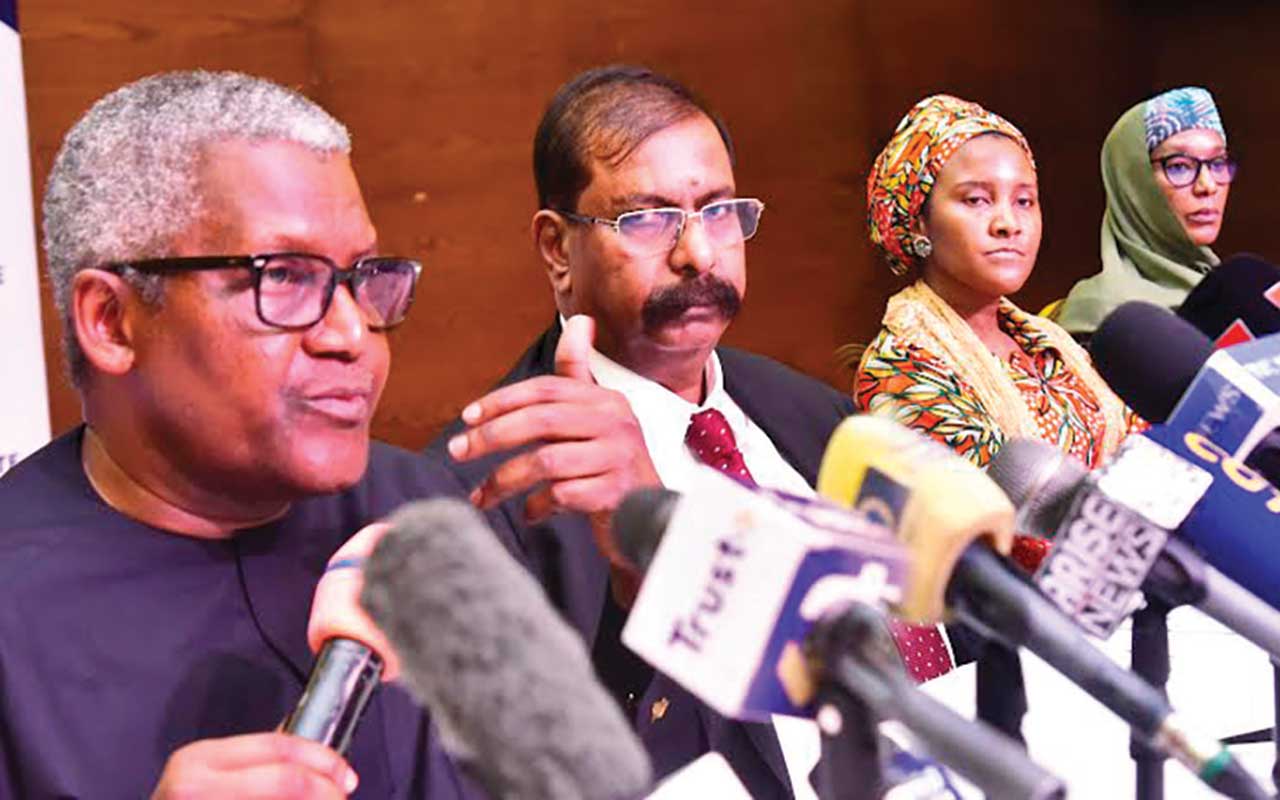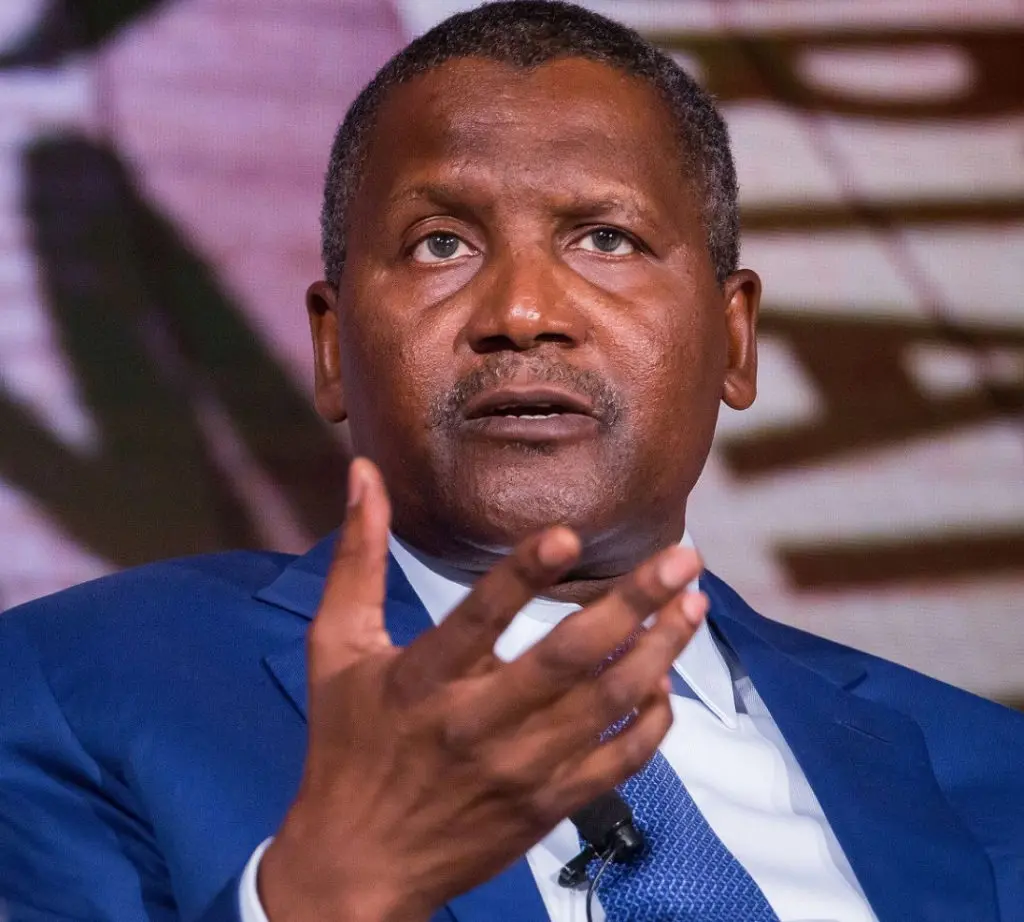Energy Boom: Dangote Refinery Expands to Staggering 1.4M BPD, Experts Hail Move!

The Dangote Petroleum Refinery is embarking on a significant expansion, with its daily production capacity slated to increase from 650,000 barrels per day (bpd) to an impressive 1.4 million bpd within the next three years. Aliko Dangote, President of Dangote Industries Limited, explained that this ambitious expansion is driven by emerging opportunities across Africa, the growing regional demand for cleaner fuels, and Nigeria’s evolving policy environment that actively encourages local refining. This strategic move aims to position the facility, already the largest single-train refinery in the world, as a global leader in petroleum refining and a crucial catalyst for Africa’s industrial resurgence.
Dangote emphasized that the expansion reflects deep confidence in Nigeria's future and Africa's potential, underscoring a commitment to achieving energy independence for the continent and the wider world. He linked this vision to President Bola Tinubu’s aspiration for Nigeria to become one of the major global suppliers of petroleum products, stating that the project is taking on this challenge with strong governmental backing. Upon completion, the Dangote Refinery is projected to surpass India’s Jamnagar Refinery, which currently holds the title of the world's largest with a capacity of 1.24 million bpd, thereby cementing Nigeria’s role as a prominent global refining hub.
Beyond crude oil refining, the expansion will also significantly boost petrochemical production. The refinery plans to increase its polypropylene production capacity from 900,000 metric tonnes to 2.4 million metric tonnes annually. This will further enhance the output of linear alkylbenzene, a vital ingredient in detergent manufacturing, along with additional production of base oils. Furthermore, the facility will transition from producing Euro V to Euro VI fuel standards, aligning with the highest global environmental benchmarks for cleaner fuels. The refinery's power generation capacity will also be expanded from 500MW to 1,000 megawatts, ensuring complete operational self-sufficiency. Over 85% of the workforce will be Nigerian, with continuous investment in skills development and technology transfer.
Economically, the project is expected to have a profound impact, strengthening Nigeria’s energy security, reducing foreign exchange outflows, and saving the country billions of dollars annually previously spent on importing refined products. Dangote estimated the refinery’s potential annual revenue could exceed $55 billion, making it one of Africa’s most valuable industrial assets. To democratize ownership and allow Nigerians to share in this value creation, a significant portion of the refinery’s shares will be listed on the Nigerian Exchange (NGX) within the next year, with plans for it to become the "golden stock of the Exchange" and a national asset. This public listing, along with cash flow and strategic investors, will finance the expansion project.
The expansion is also set to create an estimated 65,000 jobs during the construction phase and support thousands of Small and Medium-scale Enterprises (SMEs), thereby deepening Nigeria’s industrial base. Dangote expressed gratitude to President Tinubu and the Federal Government for their support of industrialisation policies like "Nigeria First," "Naira-for-Crude," and "One-Stop Shop" initiatives, which he stated have emboldened investors. He also acknowledged the government's effective collaboration in mediating recent disruptions at the refinery, including union activities and sabotage attempts. Despite the considerable investment and the long-term nature of recouping initial capital, the focus remains on Africa's long-term transformation and energy independence.
Dangote highlighted that the refinery has already stabilized local fuel supply, helped strengthen the naira, and prevented capital flight. He noted that Nigeria's pump price for petrol remains significantly lower than in neighboring countries and even cheaper than in Saudi Arabia, despite the refinery producing higher-quality, cleaner fuels that have reduced toxic dumping in the country. He urged other holders of refinery licenses to follow suit and collaborate in achieving President Tinubu’s vision of making Nigeria the refining hub of Africa, emphasizing that "When Africa builds its own capacity, it builds its own destiny."
Stakeholders have largely welcomed the expansion. Alhaji Abubakar Maigandi, President of the Independent Petroleum Marketers’ Association of Nigeria (IPMAN), hailed the expansion as a blessing that will ensure product availability and ultimately end importation. A major marketer noted that with the increased capacity, Dangote would produce more than Nigeria needs, requiring competitiveness in global markets. Professor Emeritus of Petroleum Economics, Wumi O. Iledare, affirmed that the new capacity, if managed efficiently, could generate true economies of scale by lowering unit costs, deepening regional trade, and enhancing foreign exchange stability. However, he cautioned against the risk of absolute monopoly power without strong governance, transparent regulatory oversight, and the encouragement of competitive operations from other refineries. Conversely, Professor Dayo Ayoade, an Energy Law expert, raised concerns about the potential need for significant crude oil imports from outside Nigeria due to the increased demand, implying higher costs and logistical challenges. He also suggested that despite the expansion, Nigeria might still need to continue imports for energy security.
Recommended Articles
Aliko Dangote, Africa’s Wealth King: First African-Born Billionaire to Cross $30B

Aliko Dangote, the richest Black man in the world, has reached a new milestone, with a net worth of $30.3 billion, accor...
Dangote Refinery Shatters Records, Expands to Become World's Largest Oil Processor

The Dangote Petroleum Refinery is set to become the world's largest, expanding its capacity to 1.4 million barrels per d...
Dangote Supercharges Refinery: Targets 1.4M BPD, Mulls 10% Stake Sale

Aliko Dangote announces plans to sell up to 10% of the Dangote Refinery, expand output to 1.4 million barrels per day, a...
Dangote Refinery: Nigeria's Fuel Future Secured Amidst Mafia Threats

Aliko Dangote's refinery celebrates its first anniversary of gasoline production, declaring an end to Nigeria's persiste...
Fuel Standoff Ends: NUPENG Halts Strike After DSS Resolves Dangote Rift

A long-running industrial dispute between Nigeria's NUPENG union and Dangote Refinery has reached a resolution. Followin...
You may also like...
Why Your First Failure Might Be the Best Thing That Ever Happened to Your Business

Failure isn’t the end of entrepreneurship, it’s the education success never gives. Here’s why your first business collap...
Consumerism vs Culture: Is Africa Trading Values for Trendy Lifestyles?

Is Africa trading its cultural values for trendy lifestyles? Explore how consumerism, foreign brands, and social media p...
The War on Boys: Are African Male Being Left Behind in Gender Conversations

Why are African boys and men often left out of gender empowerment programs? Explore how emotional suppression, lack of m...
Pay Slip, Motivation Slips: The Silent Crisis Among the Working Class

Across Nigeria, millions of workers are trapped in jobs that pay just enough to survive but too little to live. Beneath ...
Premier League's Unsung Heroes: Bournemouth, Sunderland, and Tottenham Shockingly Exceed Expectations

This Premier League season sees teams like Bournemouth, Sunderland, and Tottenham exceeding expectations. Under Thomas F...
El Clasico Fury: Yamal Controversy and Refereeing Blunders Ignite Post-Match Debates
)
Real Madrid secured a 2-1 El Clasico victory over Barcelona amidst significant controversy surrounding a late penalty de...
Kate Hudson & Hugh Jackman Eyeing Oscars with ‘Song Sung Blue’ Breakthrough

"Song Sung Blue" tells the true story of Mike and Claire Sarina, who find love and acclaim as a Neil Diamond tribute ban...
Pennywise Unleashes Horror: 'It: Welcome to Derry' Premiere Shocks Viewers

HBO Max's "IT: Welcome to Derry" plunges audiences into 1962 Derry, Maine, exploring the origins of Pennywise with a bru...